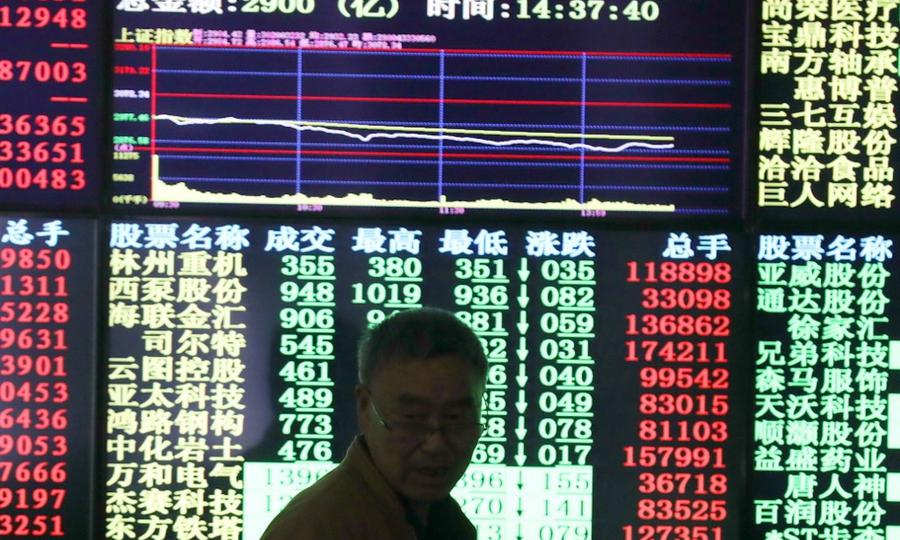Trade of the day:
· Stocks, futures make tentative gains on hopes economies are opening
· Investors are underestimating the hit to corporate earnings: Natixis
· Oil prices stabilise at lower levels but upside capped by demand collapse
European markets opened on an upbeat note after Asia rebounded from lows struck after US economic indicators struck historic low troughs.
Stoxx Europe 600 is up 1.2%, S&P futures are 0.5% higher, and 10-year US Treasuries yields rose 2bps to 0.64% with investors putting risk back on mildly as US President Donald Trump said he will announce guidelines to reopen the economy on Thursday and after Germany said it will reopen schools in early May and allow some closed retailers to open as well.
Despite their gains, Asian markets remain cautious after the IMF said growth in Asia is expected to stall at 0% in 2020 and on the eve of release of key economic numbers in China, which are expected to show the world’s second largest economy contracted for the first time in decades.
“This is the worst growth performance in almost 60 years, including during the Global Financial Crisis (4.7%) and the Asian Financial Crisis (1.3%). That said, Asia still looks to be far better than other regions in terms of activity,” the IMF’s Chang Yong Rhee said.
“China’s growth is projected to decline from 6.1% in 2019 to 1.2% 2020. This sharply contrasts with China’s growth performance during the Global Financial Crisis, which was little changed at 9.4% in 2009 thanks to the important fiscal stimulus of about 8% of GDP. We cannot expect that magnitude of stimulus this time, and China won’t help Asia’s growth as it did in 2009.”
PIMCO fund managers Isaac Meng and Stephen Chang painted a gloomier picture for China. “The economic loss is unprecedented – in nine weeks of lockdown, industrial production and services contracted about 10-15 percentage points from their pre-pandemic levels, and the unemployment rate could rise to 8-9% from 5%.”
In stocks, Japan’s Nikkei 225 dropped 1.33%, Australia’s S&P ASX 200 fell 0.92%, Hong Kong’s Hang Seng index retreated 0.58% and China’s CSI300 ended flat. Regionally the MSCI Asia Pacific index slid 1.48%.
Oil prices continue to be volatile with Brent futures up 1.3% and the WTI 1.6% higher, following their slide on Wednesday.
Credit markets were off lows as investors put money to work and bought beaten-down names in China investment grade segment, although high yield remained under pressure. Sovereign credit default swaps (CDS) are off the Asia IG index, a basis point wider at 119/122. China’s 5-year CDS moved out by a basis point at 42/45 bps, while Indonesia is 2 bps wider at 198/205 bps and Vietnam is flat at 250/300 bps. China Travel Service tightened price guidance by 40-50 basis points for a 5-year, 10-year two-trancher after it received orders of $9.5 billion.
“Although we have significant reservations behind this credit due to its core travel-related businesses in China, its ownership status, strategic standing in China, optically strong metrics as well as mitigating steps taken by the company during the height of the COVID-19 crisis in China gives us some comfort,” CreditSights said in a note about the new offering.
Quote of the Day: “In our view, markets are currently underestimating the impact on earnings from the complete halt to activity and particularly how slowly these will recover. As such, valuations might not be as cheap as they appear, especially following the recent market moves,” said Esty Dwek, Head of Global Market Strategy at Natixis Investment Managers.
Stock of the day: Alphamab Oncology rose as much as 11.2% after it received approval US Food and Drug Administration for a phase II clinical trial of KN046, a bispecific antibody, for treatment of lung cancer in the United States.
Number of the Day: 300 million pounds. The Saudi Arabia-backed all-cash proposal for the purchase of England Premiership club Newcastle United made this week.
Tip of the Day: “We reduce equities somewhat after the recent very strong rally and remaining risks on earnings and dividends (-2 points to 43%). We favour Asia (China mainly) and we have a clear preference for Japan over Europe,” Societe Generale said in a note published on Thursday. “We upgrade credit exposure. We will not be trying to swim against the tide of policymakers who are clearly throwing their weight behind avoiding a credit crisis – we upgrade credit (both grade and junk) from just 5% to 23%.”
























